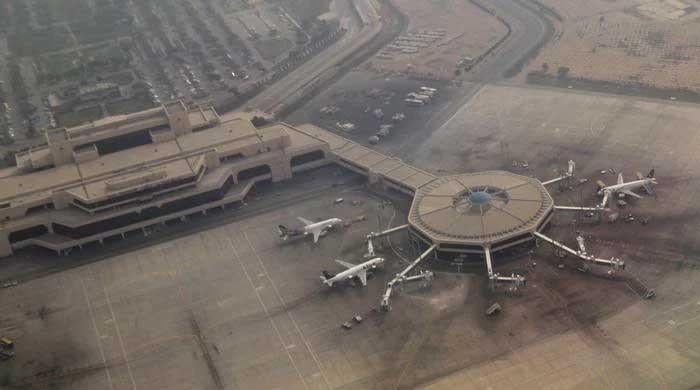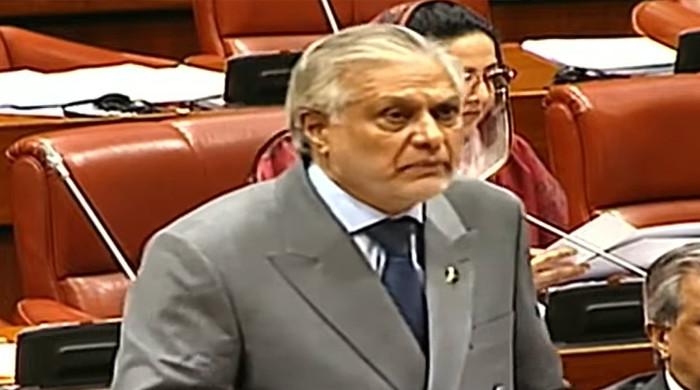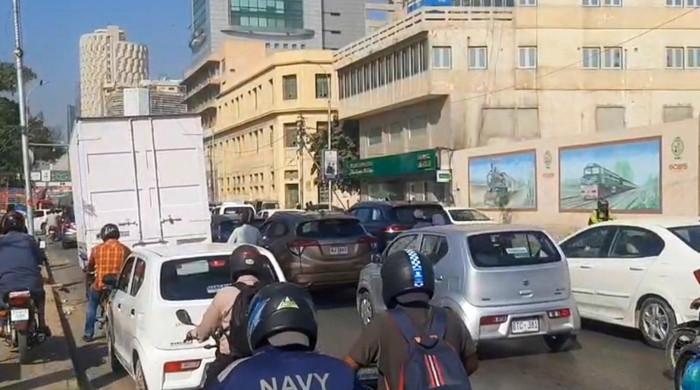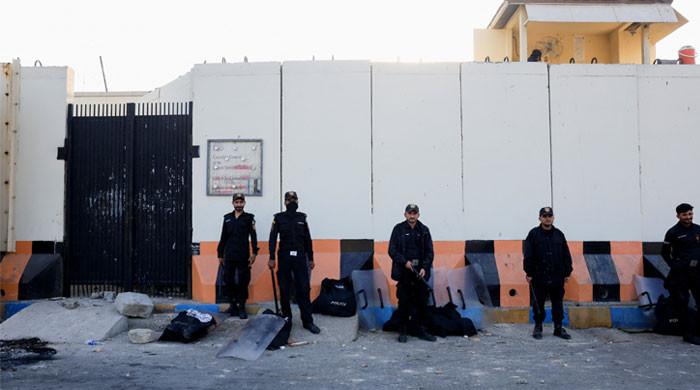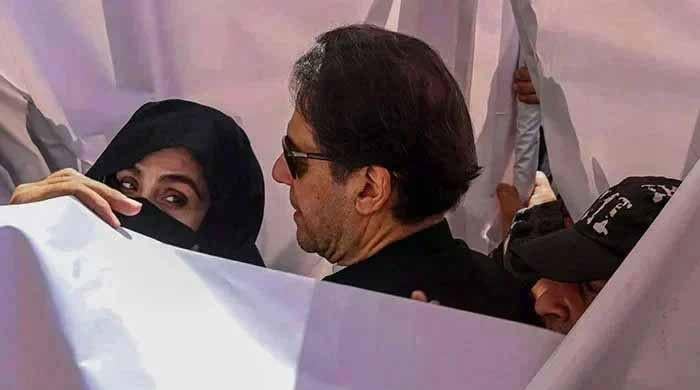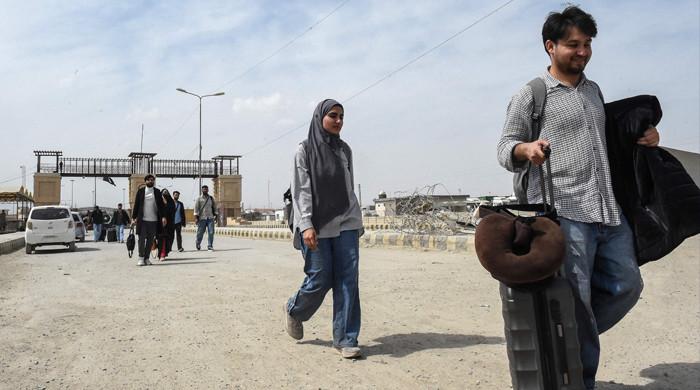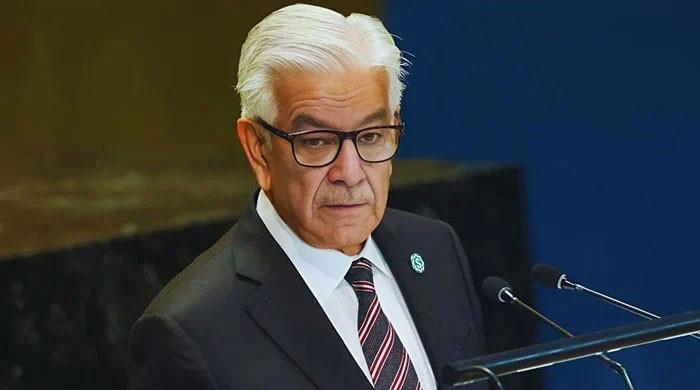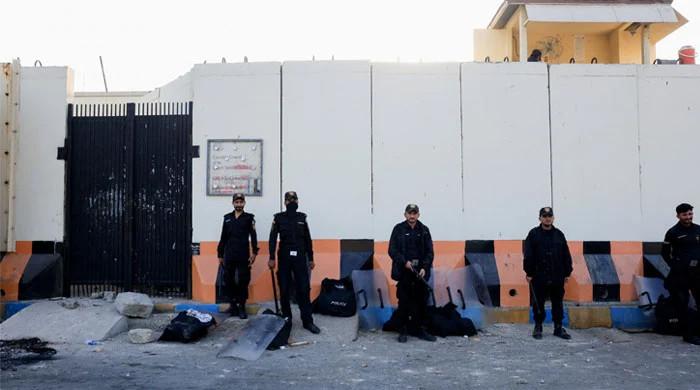Defence, nuclear experts weigh in on escalating tension between Pakistan and India
Geo.tv speaks with experts on defence and foreign policy matters assessing impact of intensifying conflict
May 07, 2025

Tensions escalated in Pakistan and India after the latter launched an unprovoked attack on different cities across its western border. The escalations have worsened the already fragile ties between the two nuclear-powered nations in the wake of the Pahalgam attack that targeted tourists and locals at an amusement spot in the scenic valley within Indian Illegally Occupied Jammu and Kashmir.
Only a fortnight after the deadly attack that New Delhi blamed on Pakistan without providing any evidence, the Narendra Modi-led government initiated ‘Operation Sindoor’ — an operation to dismantle alleged terrorists and their infrastructure — which Islamabad is referring to as a “cowardly attack” on innocent civilians in the country.
The fallout, however, turned deadly, as at least 31 Pakistani civilians were martyred in the unprovoked attack by India, deteriorating the already inflamed ties between both countries, veering dangerously towards an intense conflict. Pakistan, too, retaliated to defend its civilians and land, downing at least five fighter jets of the Indian Air Force — including three Rafale jets, one of which crashed in Bathinda — along with several drones.
With violent blows on both sides of the border, the situation appears intense and less likely to de-escalate anytime soon, as India continues with its war-mongering behaviour.
To understand the national security situation Pakistan and the strategies of the civil and military leadership, Geo.tv has spoken with experts on defence and foreign policy matters, assessing the impact of the rapidly intensifying conflict between Islamabad and New Delhi.
'Next one or two days crucial'
Brigadier (retd) Haris Nawaz, a security and defence analyst, said Pakistan has the right to retaliate because India has crossed our international border and airspace.
“The government has authorised the chiefs of the armed forces to strategise on what is right. I feel the next one or two days are crucial.”
Nawaz, who is also a former serviceman and diplomat, told Geo.tv that India kept blaming Pakistan within five minutes of the Pahalgam attack and did not even respond to the international community regarding any relevant evidence.
“The Pakistani government was ready and had made all preparations, and warned against misadventure. The army chief, General Asim Munir, categorically made this clear that we will respond. But the war mongers didn’t understand,” said Nawaz, adding that no terrorists were killed in these attacks.
Commending the Pakistan armed forces for downing India’s fighter jets worth millions of dollars, the analyst said that the IAF pilots are untrained and unprofessional.
“Their pilots cannot fly expensive jets, with each of the three Rafale jets costing approximately $300 million.”
Speaking about the impact of the situation in Pakistan and India on global geopolitics, Nawaz reiterated that two nuclear powers should never go for conventional wars, which is why Pakistan said it will neither provoke nor initiate war.
“India initiated it. When fighting begins, one cannot ascertain the dynamics of where it will end. This is the reason the world is concerned. Pakistan had, therefore, warned other countries to tame India because once the war begins, there’s no guarantee of when it will deescalate and that it could impact the entire region, including the Gulf and Middle East and the wider world,” said the former serviceman.
He added that it is crucial for the international community to “discipline India”.
Nawaz maintained that Donald Trump, the president of the United States, termed Indians stupid for initiating the attacks on Pakistan.
“They neither have the capability nor are their soldiers and pilots trained. The troops don’t trust their own military leadership and government. They have never fought wars, while our army is battle-hardened,” he added.
According to the defence analyst, Pakistan’s armed forces are prepared on both eastern and western borders. “There won’t be any problem in this context because we are capable of defending both ends. Pakistani nation should get a sound sleep knowing that the troops are awake 24 hours (to defend them).”
'South Asia’s fragile strategic stability exposed'
Dr Rabia Akhtar, an expert on South Asian nuclear security, stated that the escalating tensions between Pakistan and India have, once again, exposed how fragile strategic stability is in South Asia.
“Since both countries are nuclear-armed, the risks of miscalculation remain dangerously high. With strikes conducted deep into Pakistani territory and active air-to-air combat in a nuclearised environment, the situation represents a profound threat not just to regional peace but can have global consequences,” she said.
Dr Akhtar, when responding to Geo.tv regarding the risks of war between two nuclear powers, said that nuclear weapons complicate the escalation dynamics since there can never be planned control on escalation.
“This crisis is still in its early phases, with Pakistan’s pending retaliation completing the first round of escalation. Pakistan’s National Security Committee, in a very strong statement, has formally invoked Article 51 of the UN Charter and authorised Pakistan’s Armed Forces to respond to the Indian attacks. That means assured retaliation is on its way.
Even though she added, both sides understand the risks of escalation in a nuclear environment, that understanding has not prevented them from exploring each other’s thresholds at the sub-conventional to conventional level in the past.
“When airspace, time, and political pressure are compressed, as are in this present crisis, the risk of vertical escalation becomes acute. The real danger lies not in the intention itself to attack or to respond, but in the speed at which events can spiral beyond control, when either happens,” wrote Dr Akhtar when answering Geo.tv.
Sharing her opinion on the role of global powers with regards to the matter, the expert — who is also the dean Faculty of Social Sciences at University of Lahore — maintained that formal mediation may be off the table for now due to the current escalatory crisis dynamics but backchannel diplomacy can still shape the overall outcomes.
“The US, in particular, has the access (to both countries) and influence to encourage restraint, clarify red lines, and help both sides find a face-saving off-ramp like it has done in the past. But that window of any immediate off-ramps is closing as we speak,” she said.
Commenting on Pakistan's defence strategy following Operation Sindoor by India, Dr Akhtar said that Pakistan’s defence posture in response to the operation is likely to be rooted in its doctrine of quid pro quo plus, which is a calibrated but escalatory response aimed at restoring conventional deterrence credibility without crossing Pakistan’s own thresholds.
“The National Security Committee has rightly stated that retaliation will come at a time, place, and manner of Pakistan’s choosing. The Pakistani military response is expected to blend its conventional readiness with political signalling, while avoiding actions that would internationalise blame or trigger a premature full-scale war between both countries,” said the academic.
She added: “That said, if India interprets this period of calculated restraint as weakness, the region could be pushed into a far more dangerous terrain in the second round of escalation.”
Coming few days 'extremely intense'
Dr Maria Sultan, the chairperson and president of the South Asian Strategic Stability Institute (SASSI) University, stated that the escalation in the crises is for sure destabilising as the war enters into the next stage.
“We truly hope that India will understand the cost of unprovoked aggression in Pakistani territory, which has resulted in the shooting down of five Indian aircraft’s, a heron drone and destruction of their brigade headquarters along with numerous check posts on the [Line of Control] LOC,” said the expert when responding to Geo.tv.
She added: “The coming few days are going to be extremely intense.”




